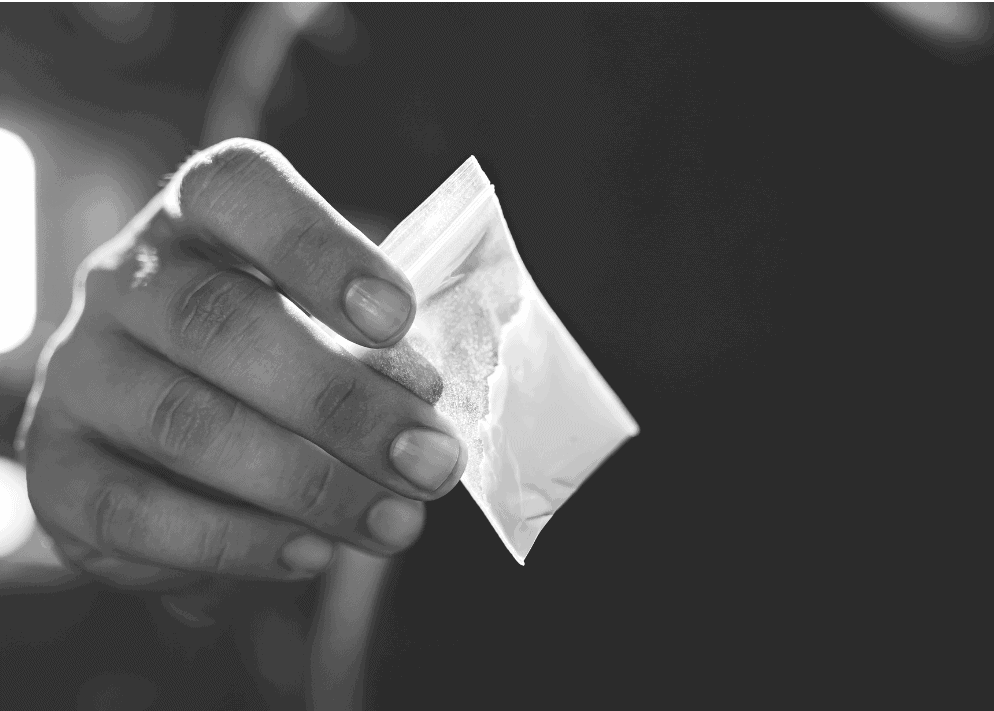Cocaine is a highly addictive illicit substance, and because the drug produces an intense but short-lived euphoric high, many cocaine users take many consecutive doses to maintain and increase their high. Cocaine is also known for having a particularly rough “comedown”— the negative effects, mainly psychological, that a user experiences when the cocaine high ends. Cocaine addiction can progress rapidly. If you are wondering if your loved one is abusing cocaine, there are universal signs of abuse and addiction, as well as signs specific to cocaine abuse that are important to know.
Universal Signs of Drug Abuse and Addiction
Struggling to fulfill duties and responsibilities
Issues with work or school, such as tardiness, absenteeism, or poor performance are often a strong indicator of substance abuse. Neglecting family responsibilities is also common.
Neglecting appearance
Changes in appearance, such as lack of personal hygiene, as well as significant weight loss or weight gain, are common signs of addiction. Individuals in active addiction can often appear pale or shaky.
Financial and/or legal troubles
Maintaining a drug habit can be expensive, and may put financial strain on a person. Legal troubles, such as citations or arrests, are also common.
Loss of interest
Another common indicator of addiction is loss of interest in hobbies and social activities. Many individuals abusing drugs begin to isolate, as their focus narrows further and further to their drug of choice, at the cost of everything else.
Signs of Cocaine Abuse and Addiction
Beyond the general warning signs of addiction, there are signs that can more specifically indicate cocaine abuse.
Signs of cocaine abuse include:
Nosebleeds or Runny Nose
As cocaine is most often snorted, the drug can do considerable nasal damage. The nasal cavity has delicate blood vessels that can rupture from snorting cocaine, leading to frequent nosebleeds. Snorting cocaine can also cause sinus issues, loss of smell, and may eventually lead to life-threatening complications.
Weight Loss
Cocaine is a stimulant that reduces appetite. Individuals abusing cocaine tend to eat little or not at all, which can lead to significant weight loss and other digestive issues.
Extended Wakefulness
When a person is abusing cocaine, they often stay up for extended periods of time, sometimes for up to several days.
Overexcitability and Mood Swings
Cocaine abuse can dramatically impact mood and emotion regulation. When high, many cocaine users can appear in high spirits, very excitable, and extremely sociable and talkative. In contrast, when coming down, withdrawing, or craving cocaine, an individual may be irritable, depressed, anxious, or angry.
Knoxville Recovery Center Can Help
The consequences of cocaine abuse can have lasting, detrimental impact on a person’s life. Fortunately, help is available for those battling this addiction. Depending on the stage of an individual’s addiction, they may require detox, an intensive treatment program, or both. Fortunately, Knoxville Recovery Center offers various services to those struggling with this addiction.
Services offered:
Detox – Our on-site detox clinic accommodates and supports clients as the body sheds all residual traces of cocaine. Clients are under medical supervision during the detox process to ensure that they remain safe and comfortable.
Addiction Treatment – During our addiction treatment program, clients will engage in introductory therapies and exercises that work to prepare them for continued, more intensive treatment outside of our facility. The goal of our addiction treatment track is to stabilize clients so that they are treatment-ready.
Mental Health Treatment – Our mental health treatment program introduces behavioral therapies rooted in self-expression and holistic exercise. Art therapy, music therapy, and yoga are just a few forms of therapy we offer at the center. Our goal is to help the client reclaim their voice and expose them to treatment within a professional facility.
Aftercare Planning – Aftercare is designed for individuals who have benefitted from our introductory addiction services and are transitioning into a more intensive addiction treatment program. Once a client is stabilized, they will be encouraged to pursue continued addiction treatment. Our experienced case managers will then work with our clients to place them in a program that addresses their specific wants and needs.
Addiction is difficult to overcome alone. If you feel that you or a loved one is struggling with cocaine abuse, our specialists are on standby and ready to help. Call Knoxville Recovery Center and speak with an addiction expert today.










